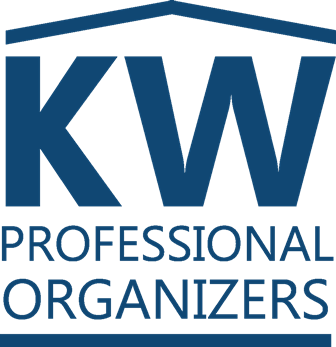Decluttering for Successful Entrepreneurship.
“Decluttering forces the entrepreneur to go through everything (physical, mental or both!) to find what is important and what adds value.
Once this process is completed what remains is a clearer view of what needs to be done”.
We had the honour to meet with Zoe, the Chief Executive of Schmooz, a successful Online Consulting Firm in Toronto.
Zoe understands how important decluttering is for successful entrepreneurship. She shares with us challenges that most of her clients are facing and also her personal challenges regarding of clutter.
She also created a blog post “Decluttering… for entrepreneurs” where we answer some questions for her.
Why are you interested in talking about decluttering Zoe?
I have had many clients coming to me talking about all the noise that surrounds them as they work on building their businesses. When I ask what “noise” they are talking about, it’s many things: It’s the stack of papers on their desks, their accounting tool, the ads that pop up on their Facebook making them feel that they should be doing more and the pressure they feel to use every platform for their business. I’m interested in talking about decluttering because I think people need to feel that they have permission to choose and to simplify so that they can be productive, efficient and more satisfied.
“People need to feel that they have permission to choose and to simplify so that they can be productive, efficient and more satisfied”
What kind of clutter have you seen from working with entrepreneurs?
I have seen lots of different types of clutter in my time working with entrepreneurs.
Technology clutter– “Which tool do I use? How many self-help online course videos should I watch? What entrepreneur newsletters should I unsubscribe from?”
Paper Clutter- “Hold on, let me write that in my agenda, my day planner, my google calendar, my iPad notetaker, my Evernote”…you get the drift!
Brain Clutter – “I’m not sure what to do for my business, there are so many options. I could expand, I could do an e-book, I could run ads, I could go door to door…but I only have $1000.00 to spend”
How do you think decluttering can help small business owners?
I think a lot of people feel overwhelmed by all the options available and are worried about missing out on something if they don’t do it all. This is something I can relate to because it’s a very human thing to feel. Learning about decluttering could be very helpful in making small business owners clarify what is specifically important to them.
Do you personally feel like you have clutter in your life/small business?
My biggest challenges are keeping track of my expenses and managing my own expectations about clutter. I’m a very in-the-moment type of person, and I find it hard to take a pause and take a picture of my receipts. The other challenge I’ve had is that my husband and I have been doing home renovations through most of my time running Schmooz Media. It was particularly hard to run my business from home while our house was a dusty messy construction site. As the home projects subside, and I leave home to go to work now, I feel much more balanced.
How best do you learn new information?
I learn best by doing. From my days of teaching, we always talked about show don’t tell and I think that could not be truer. That’s why teaching my clients how to reach their clients and not only reaching clients for them is important to me. Knowledge (that means something to you) is power! If I’m in a stressful situation, I will learn to adapt and do so well, but my desired learning experience is to understand why I need to learn something from a high level and then do it, even if mistakes are made along the way.
What value does learning about decluttering offer?
I believe that small details make a big difference, however, that does not necessarily mean getting hung up on too many things. In life, simplifying is important. Fewer things done meticulously could be just impressive than many things done in a mediocre way. It’s a choice. Learning how to make that choice is vital- learning what gives you energy or takes energy away from you is empowering. Learning about decluttering can help make it clear what your priorities are.
What are your top 3 fears when it comes to decluttering or clutter?
1) I’m afraid I’ll “declutter” too much and forget to keep something important. I’d like to trust myself more but in life, there are so many variables and things to remember that it is hard to give myself permission to let go.
KW Professional Organizers comment:
We believe that you can become paralyzed by keeping things for that “just in case” situation. We also believe that if you have the storage space and an organizing system in place, KEEP STUFF! Make sure the items you keep are easily found, accessible, and most importantly, are not preventing you from using a space for it’s intended purpose.
For example, you might think storing papers on top of your desk is best because that’s where you see them and they’re easy to access, BUT they prevent you from having a clean and clear working space. Try instead a paper management system like a filing cabinet, stackable trays, etc.
The most successful entrepreneurs always make time to step back and re-evaluate! We strongly recommend scheduling time in your calendar every 6 – 12 months to go through your stored items and repeat the decluttering process. If you are succeeding with growth in your business, you will not need most of the items you’ve been storing. Schedule the time and keep only what is relevant and adds value!
2) Holding onto clutter gives me an excuse to mess up. If I get truly organized, then I won’t have an excuse if I make a mistake. While I only have myself to blame if things are out of control (“If only I had more time to organize my desk, then I would be more productive every day” for example)…if I try to control things more and still fail, the failure might feel greater. (“Now my desk is organized, but I still don’t know what work to start with. What’s wrong with me?”) This is counterintuitive because while it’s likely that I will succeed more with less clutter, the fear of this type of negative self-talk is still there.
KW Professional Organizers comment:
It’s very normal to be afraid of change. Decluttering means change, by having less you will have more room for more. More time, more space, more freedom.. but what’s next? It’s really important to ask yourself “why am I doing this?” There is always a reason or a goal that will pull you to keep going.
It’s also important to be aware that trying and failing is a part of life. Don’t be afraid of failing because when you fail you will learn a very valuable lesson. Every time we encounter a challenge or tough experience we ask ourselves, “What are we learning from this?” It quickly flips your mindset from being pissed off or frustrated to “Wow, I just realized that I never want to do a project like this again!” OR “If I had to do this all over again, I would have started like this instead to avoid the outcome I’m in now.”
3) If we assume that time = money, what’s the return on investment in terms of spending the time to declutter? Are there tangible ways to measure the time I spend making myself feel more in control? The answer is yes, but this might be more of a feeling than something I can capture in items I can hold in my hand.
KW Professional Organizers comment:
We measure everything and that includes time! We believe you can measure the investment by keeping track of how you spend your time. We recommend using Toggl to track your time. When you start to see where and how much of your time you spend on projects, paperwork, social media, and other business stuff; you can become empowered by numbers.
For example, meet Sally. Sally is always spending time looking for missing papers, that one email, her keys, or that note she jotted down on a post-it. Sally decides to track how much time she spends looking for things and it adds up quickly. She spends on average 1 hour a DAY looking for things. Sally is a consultant and charges her clients $185/hour. Let’s do some math!
1 hour x 5 days per week = 5 hours
5 hours x 52 weeks per year = 260 hours
260 hours / 24 hours in a day = 11 days *almost two weeks of time spent looking for things
OR Financially… 260 hours x $185 hourly rate = $48,100 of billable revenue LOST
What are your biggest challenges? Feel free to leave a comment below.
If you liked this article please share it.
Cure your clutter, live your life
Receive our weekly newsletter for support and tips for getting organized.
Hit "JOIN" to add your name and email
15,356 Students are already changing their lives by watching our online courses. Join the most empowered group of learners today!
We offer a 30 day money back guarantee, so joining is Risk-Free.




